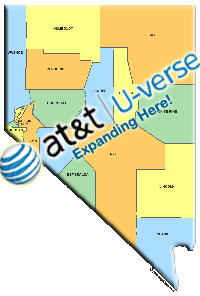 West Virginia residents are assured of an indefinite future with 1-3Mbps usage-capped “broadband” as Frontier won conditional approval of its plan to assume control of the majority of the state’s landlines.
West Virginia residents are assured of an indefinite future with 1-3Mbps usage-capped “broadband” as Frontier won conditional approval of its plan to assume control of the majority of the state’s landlines.
Frontier Communications, the phone company with the 5 gigabyte monthly acceptable usage allowance, won approval from West Virginia’s Public Service Commission after nearly a year of opposition from several unions and consumer advocacy groups. The opposition, led by the Communications Workers of America, charged that Frontier’s balance sheet made it impossible for the company to fulfill promises to deliver quality phone and broadband service to the majority of the state’s residents. Consumer groups, including Stop the Cap!, argued Frontier’s DSL broadband service is inadequate for the state’s needs, because it typically only provides 1-3Mbps speed and is usage-limited for residential customers.
Verizon’s history of bad service in the state helped drive some to believe Frontier can do better
Verizon’s West Virginia division has frequently achieved a poor rating among many West Virginians upset with the company’s service record and broadband deployment. Last Monday, the PSC announced that Verizon’s service in the state was so poor, it ordered the company to place $72.4 million in an irrevocable escrow account to be used to improve the quality of service. The PSC found Verizon’s disinterest in delivering service in West Virginia had resulted in the deterioration of Verizon’s essential infrastructure.
The PSC-ordered escrow account will be used to maintain and improve everything from restoring copper wiring to vegetation control and pole replacement.
With a history of complaints like that, it comes as no surprise West Virginians are ready to wave goodbye to Verizon, hoping for better times with Frontier Communications.
Bray Cary, a TV station owner in West Virginia, has hosted editorials on his network of local stations across the state promoting the transaction, believing it will bring a better future for the state’s telecommunications needs. Just two weeks ago, he demanded the PSC make a decision on the proposed merger, claiming the state needs a “modern, cutting edge communication system that will bring high-speed Internet to every corner of this state.” Unfortunately for Cary, there is nothing from Frontier that comes close to “cutting edge,” with the exception of the company’s brazen Internet Overcharging scheme now being tested in Minnesota that threatens to bring $250 monthly broadband bills to some residents.
[flv]http://www.phillipdampier.com/video/WOWK Charleston State Must Act on Verizon-Frontier Deal 5-4-10.flv[/flv]
WOWK-TV’s Bray Cary criticized the West Virginia Public Service Commission for stalling on a decision to move forward the Verizon-Frontier landline transfer in the state. Just about ten days later, the PSC conditionally approved the deal. [Video problems were a part of the original clip] (Aired: May 4, 2010 — 1 minute)
Frontier specializes in delivering slow-speed DSL service to most of its rural service areas, usually less than 3Mbps in speed. Even in its largest service area, Rochester, N.Y., the company’s broadband options are an also-ran against the far faster and more reliable cable modem service from Time Warner Cable, which also beats Frontier’s out-the-door price.
Unfortunately, West Virginian media has never given important details to residents about the specific services Frontier is willing and able to offer residential customers. It also never informed customers about the important limitations the company attaches to its “high speed Internet” Cary hopes to see available in every corner of the state.
Sometimes change for change’s sake is not an improvement.
The PSC attaches conditions to its approval
The Commission did not grant blanket approval to the transaction. The PSC is requiring that Frontier:
- Honors all existing obligations of Verizon following the close of the sale, including the currently effective Retail Quality Service Plan approved by the Commission to continue through at least July 2, 2011.
- Makes capital investments in Verizon of $30 million during the second half of 2010, $75 million in 2011 (including $12 million targeted at service quality), $63 million in 2012 and $63 million in 2013.
- Makes additional capital investments of at least $48 million to increase broadband deployment and subscription in the Verizon service territory.
- Expands broadband availability in Verizon service areas so that by no later than the end of the fourth year following the close of the sale, access to broadband service will be available to no less than 85 percent of the households within Verizon service areas.
- Locates its Southeast regional headquarters in Charleston, WV, after closing the sale. Charleston will be Frontier’s Southeastern regional headquarters, and will be a major employment center for Frontier in the region. It will be the hub for engineering, technical, operation and executive personnel for Frontier’s operations in West Virginia, Tennessee, North Carolina, South Carolina, Mississippi, Alabama, Georgia and Florida.
- Adopts all of Verizon’s tariffs, price lists and contracts, including long distance, under the same terms and conditions at closing.
- Caps all regulated rates subject to jurisdiction of the Commission for one year after close of the transaction.
- Provides E-911 functionality provided by Verizon prior to close.
- Waives early termination fees for current Verizon customers participating in a Verizon bundled service package for the first 90 days after closing.
Reactions from all over
“We’re pleased the commission has approved the transaction. The record developed in this case provides comprehensive evidence and assurances that the transaction with Frontier Communications is in the public interest and will provide many benefits to West Virginia residents, including increased investment and broadband availability in the state, while protecting jobs and promoting employment.”
— Verizon-West Virginia President B. Keith Fulton
“We’re in the process of evaluating the order. After full review we’ll look at what we can do that will best serve West Virginia consumers and CWA members. Of course, we’re disappointed but we’re heartened by the fact that at least one person on the three-member commission agreed with us and more than 80 legislators, several county commissions and a broad coalition of consumer, union and first responder organizations that this deal is too risky and not in the public’s interest. The split decision shows our arguments about the deal had validity.”
— Communications Workers of America, District 2 Vice President Ron Collins
“There are many areas of West Virginia that will always be dependent on landlines, absent some sea of change in technology. Those are the people I’m most concerned about. They’re the truly captive customers of now Verizon and, in the future, Frontier.”
— West Virginia Public Service Commission’s consumer advocate Byron Harris
“We’ve seen how Wall Street’s investments can backfire. Like Frontier today, Wall Street once put its confidence in Global Crossing and that led to a disastrous bankruptcy. We’re concerned that the Rochester-area and other existing Frontier properties may be starved to fund this expansion.”
— John Pusloskie, President of CWA Local 1170 in Rochester, N.Y.
“Today’s approval is a welcome and important step. Our goal is to gain the approval of the FCC so that we can close the transaction and begin bringing its benefits to consumers and businesses.”
— Maggie Wilderotter, Chairman and Chief Executive Officer of Frontier
West Virginian media covers the conditional approval
A handful of television stations covered the conditional approval, most without much depth. West Virginian newspapers covered the fight between Verizon and Frontier and the unions and consumer groups, but no paper really provided in-depth coverage into the challenges of West Virginia broadband and what precisely Frontier is capable of providing to solve it. Consumers will discover soon enough that West Virginia has yet again gotten the short end of the online stick. Only this time, they better not wave it around too much — it might exceed your monthly stick-waving allowance.
[flv width=”500″ height=”395″]http://www.phillipdampier.com/video/WOWK Charleston Union – Verizon-Frontier Deal Bad for W.Va., Verizon Responds 5-14-10.flv[/flv]
WOWK-TV in Charleston delivered the most substantial report on the sale, including this brief interview with PSC spokeswoman Sarah Robertson. (2 minutes)
[flv]http://www.phillipdampier.com/video/WTAP Parkersburg Verizon-Frontier Deal Approved 5-14-10.flv[/flv]
WTAP-TV in Parkersburg ran this brief in-studio report about the Verizon-Frontier approval. (1 minute)
[flv]http://www.phillipdampier.com/video/WDTV Bridgeport Verizon Sells Land Lines to Frontier 5-14-10.mp4[/flv]
WDTV-TV in Bridgeport explained the requirements of the conditional approval. This was the only report on the approval that included the opposition’s perspective. (1 minute)


 Subscribe
Subscribe






